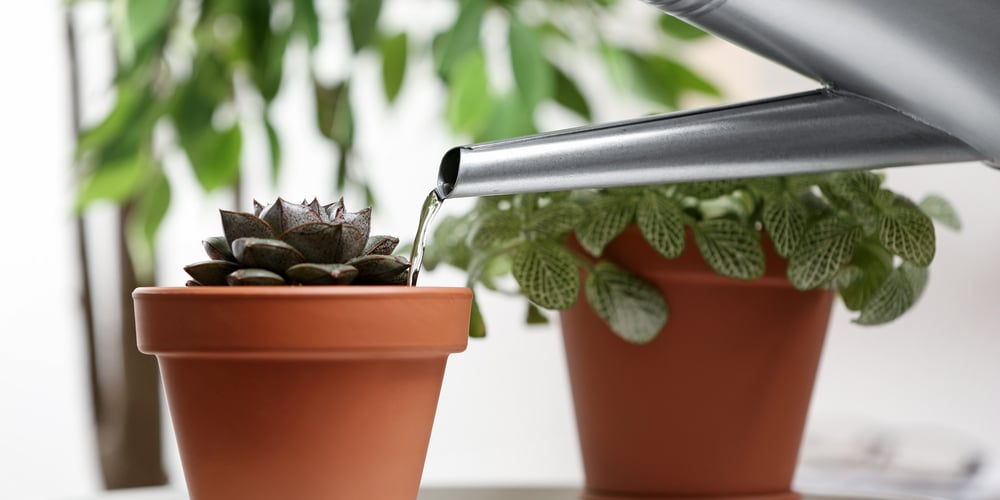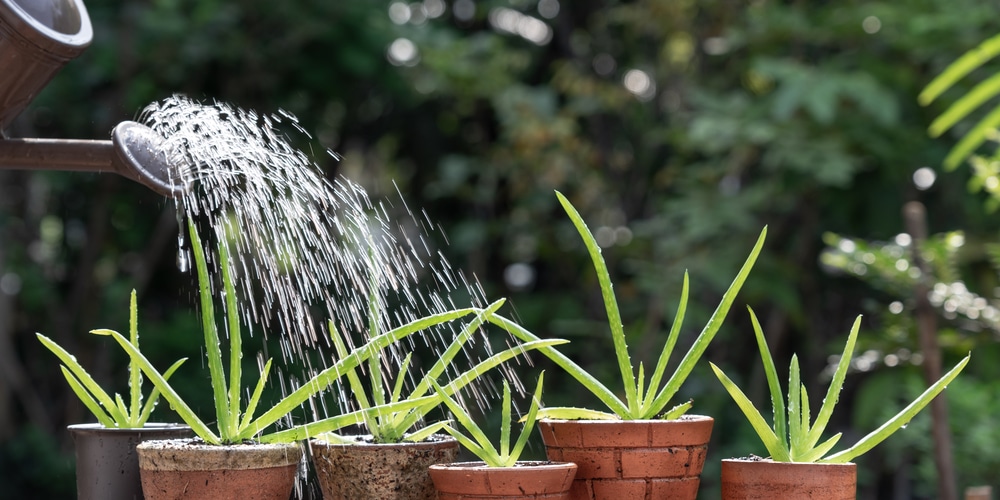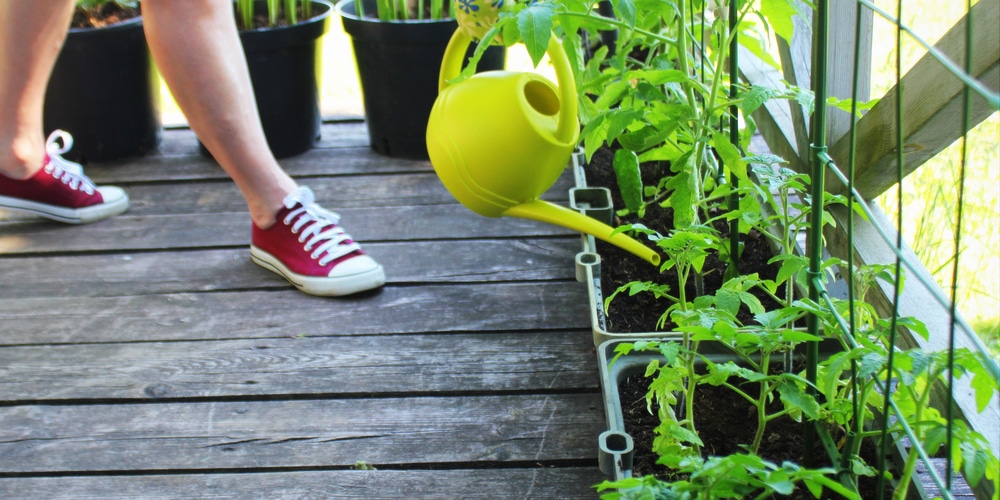Do you have a well at home and want to see if you can use it to water your plants? Or maybe you’re looking to have a well dug as an extra water source or landscape fixture. Either way, you could be asking, ‘is well water good for plants?’
Can You Water Your Plants with Well Water?
Generally speaking, water taken from a well is safe for plants. It’s believed that domestic wells are deemed safe for watering and can prove to be beneficial as they contain trace amounts of minerals that plants need to grow.
Pure water has a neutral pH of 7, while well water will have a pH range of somewhere between 6.5 to 8, depending on its quality. That said, you should be able to use water from a well to irrigate plants and trees.
Aside from having a cheap source of irrigation, well water can contain essential plant nutrients such as iron, magnesium, potassium and calcium. However, it’s not recommended that you use well water for your plants right away since it can contain harmful substances and contaminants that can affect their growth.
Is Well Water Safe for Plants?
Well water is categorized under untreated groundwater and is different from tap water, or the one you get from the faucet. Wells are created by digging holes into aquifers, or underground rocks that contain water. Hauling up water from a well is usually done using a bucket.
Well water is safe for watering plants as long as it does not contain harmful bacteria, and it shouldn’t contain too high a concentration of minerals as well. Furthermore, it could be too alkaline or acidic, which will prove to be detrimental to plants in the long run.
Radishes and sweet potatoes love well water as it’s suited for their pH requirements. When tested and verified, well water can provide essential nutrients as well as beneficial microorganisms for your plants.
Before using well water it’s recommended that you test it out for potential pathogens and excessive amounts of minerals. You can have a sample sent to a test lab near you, through a local health department, or by purifying it yourself using reverse osmosis or a water purification kit. This way, you can water your plants without worrying that it might be bad for them.
Possible Downsides in Using Well Water for Plants
Biological Contaminants
Well water may be contaminated with parasites, bacteria and other biological microorganisms. Furthermore, nitrites and nitrates can reach wells through groundwater movement, and too much of it can be harmful to plants.
Too High or Too Low pH
The usual pH of well water lies somewhere between 6.5 to 8, which isn’t a bad thing by itself. However, there are several factors that could contribute to well water being too alkaline or acidic, including the presence of salt and heavy metals.
Chemical Contaminants
Chemical contamination is possible if you’re located in an industrial area. Factories might be dumping chemicals in rivers or local water sources, which will eventually make its way to your well water supply.
Even if there isn’t a factory in sight you should still have your well water tested. A nearby sewer, septic system or storage tank may be leaking dangerous chemicals that seep into waterways. Rainwater can also carry chemicals and biological organisms from contaminated soil and bring them to wells.
Heavy Metals and Salt
Nitrogen, lead, magnesium, calcium and iron are just a few heavy metal components in well water you should look out for. While they’re beneficial to plants and trees in the correct amounts, too much can lead to a lot of bad things, including wilting, chlorosis and plant death.
Some plants, such as geraniums, blueberries, azaleas, root crops and vegetable varieties are sensitive to heavy metals. Runoff from nearby farms and ranches can make well water contain more nitrogen than what’s safe and cause toxicity. pH can be affected by these minerals as well and make water unsuitable for plants.
Is well water good for plants: Conclusion
Although well water is generally considered safe for plants, you should always conduct a test first to determine its pH levels and if it contains excessive minerals.
You can also run water collected from a well through a filtration system before giving it to your plants.
Related Article: Is Sugar Water Good For Plants?


